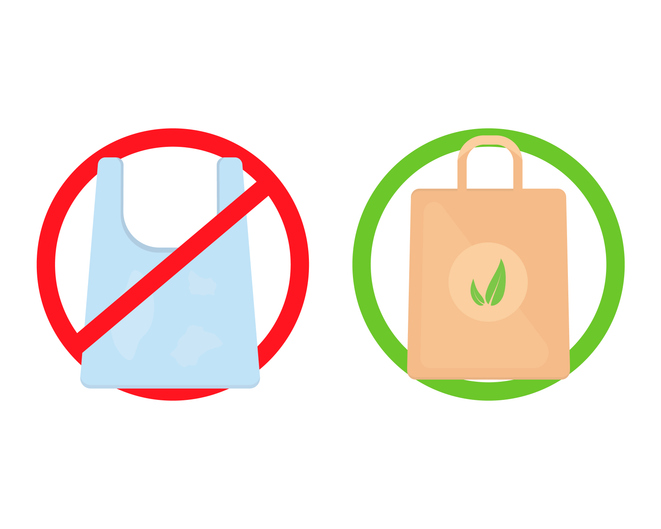More than 100 countries impose some sort of restriction on single-use plastic bags. This may be by partial or outright prohibition, or a charge for bag use at stores. Global travelers will increasingly encounter this ban, and will have to adapt to host-country practices.
Bangladesh was the first country to ban plastic bags, a measure taken in 2002 to alleviate the polluting clogs that hindered water drainage and caused flooding. Environmental issues are a driving force behind every ban, whether it’s because plastic overwhelms landfill with no hope of decomposition, it finds its way into natural surroundings and poses a risk to wildlife, or methods of disposing of it – like burning – create unhealthy byproducts.
This last reason is one that prompted Rwanda to be an early adopter of plastic bag bans in 2008. Rwanda’s stringent policy has been part of its post-genocide reconstruction and a community-focused culture that has both helped heal a nation and made it one of the cleanest places in Africa.
In Rwanda, importing, producing, selling, or using plastic bags is illegal, with very few exceptions. Repercussions are strict: offenders are fined or jailed. Travelers to Rwanda will have their luggage searched at Customs and plastic bags confiscated. Newcomers should plan on using alternative containers.
Other countries also take plastic reduction seriously. A few examples:
– In 2023 New Zealand banned the thin plastic bags used in supermarket produce departments. Shoppers either bring their own bags for fruits and vegetables or purchase reusable bags available at the store.
– In 2020 Britain implemented a ban on plastic straws, allowing them to be dispensed only when a drink-buying customer specifically asks. In 2023 this ban extended to single-use plastic plates, bowls, and utensils, as well as polystyrene containers.
– Starting in 2002, retailers in Ireland have charged a Plastic Bag E-Levy – now 22-cents – to any customer who wants this type of shopping bag. Fees fund waste-reduction initiatives.
– In 2015 the U.S. banned plastic microbeads in health and beauty products. Other countries like Canada, Taiwan, and the UK also ban plastic microbeads.
– While there is no nationwide plastic bag ban in the U.S., about a dozen states have bans in place, as do hundreds of municipalities.
Travelers should be aware of local laws and plan to use plastic alternatives where appropriate. In many locations, shoppers are very accustomed to bringing their own reusable bags into grocery stores. Observing practices to eliminate other plastics is a good way to take our sustainability mindset with us when we go abroad.
Find country-specific sustainability information – including nationwide initiatives and local details affecting daily life –in Living Abroad’s International Relocation Center (IRC).
Written by Ellen Harris, GMS, Product Manager, Content Group

